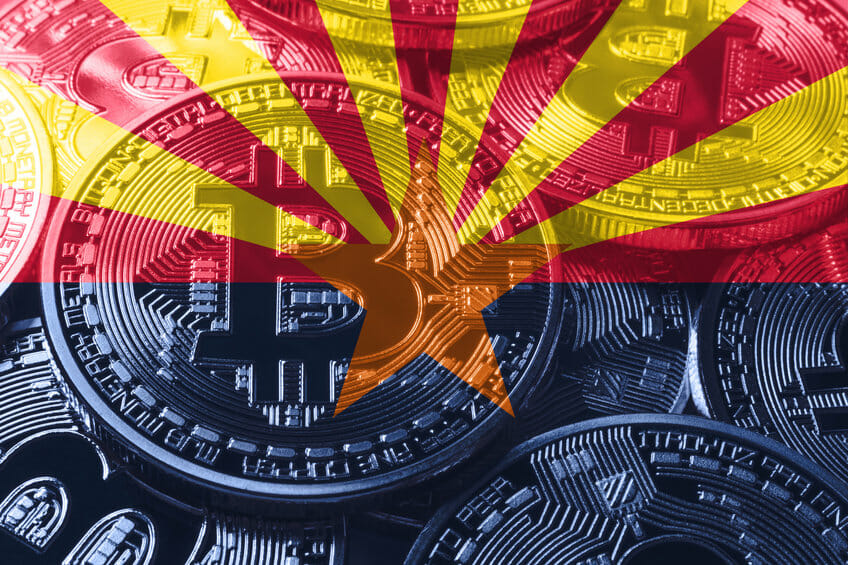It’s impressive how much things can change in 15 years. In 2010, one would have to bargain quite a lot to exchange Bitcoins for real-life goods. Back then, exchanging 10,000 units of a (still) pretty worthless thing for two Papa John’s pizzas. The anecdotal case became known as “Pizza Day,” it occurred on 22 May 2010, marking the first time Bitcoins were used as currency in real life.
FOOD NEWS: 10 celebrity chef restaurants to try in Arizona
No one questions the impact of Bitcoins on the real world today, and no one would dare to pay nearly USD 1 billion (according to today’s Bitcoin market price) for two pizzas. Bitcoin has become a financial force, with private and public institutions investing heavily in it. The acceptability problem that once plagued the famous crypto also seems to be gone, as countless businesses now accept BTC as a payment method.
Is it time for Arizona companies to jump into the BTC wagon? Keep reading and find out.
Bitcoins and the Local Market
Every major company seems to be adopting Bitcoin payments, from Starbucks to Microsoft from Subway to Tesla. In fact, there are over 2,300 businesses operating with cryptos in the United States, meaning that it’s not a thing for big companies only. Small and medium businesses around the country have been opening their minds to the crypto world, and the benefits are many.
Crypto transactions have much smaller fees and no chargebacks. It’s also very convenient for cross-border transactions, as there’s no need for currency conversion. So, it’s an excellent opportunity to promote local businesses to global audiences. Besides, setting up a crypto payment gateway has no upfront costs and is very easy.
Even Arizonan businesses that don’t have global ambitions have good reasons to incorporate Bitcoin payment solutions. After all, Arizona is the 6th state in the country with the most Bitcoin owners. It’s vital to remember that Bitcoin payments aren’t online only; there are also crypto credit cards that allow in-store payments just like any other credit card.
Potential Risks
Cryptocurrencies aren’t quite like other payment methods, and business owners should be aware of their particularities before jumping into them. First of all, Bitcoin payments are irreversible, which means refunds will only occur if the receiving party agrees with it. Nevertheless, refund requests are bound to occur, and businesses must be ready to track and handle them efficiently, otherwise risking losing money.
Additionally, the IRS considers Bitcoins ” property ” for tax purposes. It means that it’s not enough to keep track of operations. It’s also necessary to record Bitcoin value on the dates the operations occurred. It’s a problem that can quickly escalate for companies that handle multiple operations daily, creating an accountancy nightmare for business owners.
It’s vital to remember that Bitcoins are incredibly volatile, a risk for both ends of the deal. The crypto market can change very fast, and its mood swings are, sometimes, rather abrupt. There isn’t a volatility-proof solution here, but businesses can opt for reputable payment processors that allow them to sell their assets quickly in the case of a market downturn. These platforms also guarantee the security of transactions, using heavy cryptography and 2FA.
Regulatory Advances
Lawmakers in the Sunset State are moving fast towards Bitcoin-friendly legal frameworks. Indeed, they have proposed five bills dealing with the famed crypto, from ATM regulation to tax payments and legal tender status. The SB 1025 (Arizona Strategic Bitcoin Reserve Act) has already been approved, allowing the government to invest up to 10% of public funds in Bitcoins and other cryptos yearly.
SB 1373 (Strategic Digital Assets Reserve Bill) allows the state’s treasury to create and manage a special reserve for seized digital assets from criminal proceedings, which has also been approved.
House Bill 2387, proposed by Representative David Marshall, deals with Bitcoin ATMs, which scammers have constantly targeted in recent years. In 2023, scammers walked away with USD 127 million in BTC, a situation that calls for urgent action. The bill proposes a daily limit of USD 1,000 worth in BTC. However, the bill is still pending approval.
One of the boldest proposals aims to turn BTC into legal tender. State Senator Wendy Rodgers has proposed the bill. However, law specialists believe it may face legal challenges since only Congress can define what can be accepted as legal tender, according to the Constitution.
What Lies Ahead
The business world is still discovering Bitcoin’s potential beyond its obvious advantages, like low fees and seamless cross-border transactions. It turns out that Bitcoins can also be the backbone of innovative loyalty programs. Massive platforms allow consumers to exchange loyalty rewards through BTC and vice versa. Such is the case of Bakkt, which recently partnered with Mastercard to support BTC exchanges on the platform.
Some companies even use BTC to pay their employees. In this case, salaries are still calculated in dollars, and employees receive the equivalent amount in BTC, depending on its market value on payday. Thousands of Arizonans use Bitcoins in their daily lives, and adoption will likely increase in the next few years.




